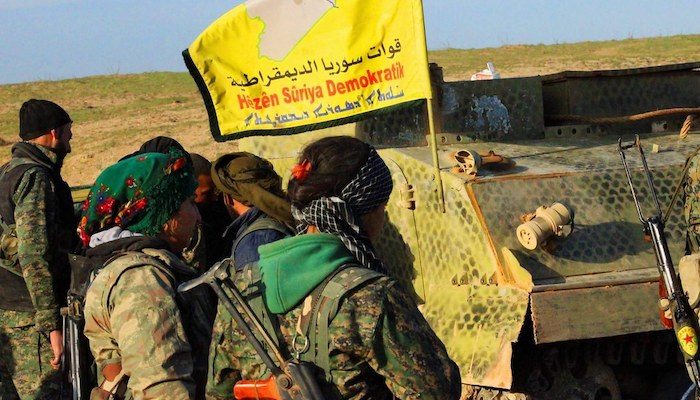About 100,000 Kurds flee Aleppo, the third front in the war between rebels and Assad
The Syrian Democratic Forces (SDF) are forced to pull back From Sheikh Maqsoud, Ashrafieh, and Tel Rifaat from advancing pro-Turkish forces. HTS promises of "inclusiveness" find few takers. Meanwhile, government forces and allied militias are trying to push back rebel advance towards Hama.
Damascus (AsiaNews) – After seizing Aleppo, Hayat Tahrir al-Sham (HTS)-led rebel forces pursued their offensive against the Syrian army of President Bashar al-Assad, and are now heading towards Hama (and Homs) with Damascus in their sight, while the Kurds could be next.
The fall of Syria’s business capital and second-largest city, Aleppo, has resulted in the flight of thousands of Syrian Kurds towards the east, fearful that they might have to leave lands and villages that have been their home for years.
Kurdish forces are also in danger, starting with the People's Protection Units (YPG) linked to the Kurdistan Workers’ Party (PKK), an armed group that for years has fought Turkey, while Ankara has backed and financed Syrian rebel groups.
Until last week, more than 100,000 Kurds lived in Aleppo, mostly in neighbourhoods such as Sheikh Maqsoud and Ashrafieh, as well as Tel Rifaat, Tel Aran, and Tel Hassel.
The Syrian Democratic Forces (SDF) controlled these areas, but was forced to pull out over the weekend due to the offensive of the Turkish-backed Syrian National Army (SNA), which captured Tel Rifaat, setting off the exodus of residents.
Many Kurds who fled east Sunday evening had been displaced from Afrin in 2018, 30 kilometres to the west, when the city fell to anti-government forces. Since then, they have been scattered in informal settlements in Tel Rifaat, which Kurdish fighters took from Syrian rebels two years earlier with Arab residents fleeing to Turkish-controlled Azaz.
The displaced Arabs want to return to their villages and towns, while a counter-exodus of 120,000 Kurds, many from Afrin, is moving in convoy to Tabqa.
Bassam Alahmad, head of Syrians for Truth and Justice, a group that documents human rights violations, is sceptical about the assurances and inclusive language used so far by HTS leaders.
"I don't believe the future holds anything positive for the diversity of this region," the activist said. Instead, “they will try to impose their rule on everyone," adding that the Assad government is not necessarily better. “It is important to emphasise that neither the regime’s project nor HTS’s offer protection, democracy or a positive future for minorities or all Syrians.”
Since the Syrian revolution broke out in the spring of 2011 and the subsequent civil war, Kurdish forces maintained a certain balance between the warring parties, avoiding any direct involvement in the fight against the Syrian regime, without going over to the government side.
Now the SDF has had to face an offensive on its western flank, with the risk of losing ground to pro-Turkish forces.
In the past, the Assad regime had entrusted some key points and strategic junctions to the Kurds, including Aleppo international airport, which is now in rebel hands.
In addition, there is also a great risk that the Islamic State (IS) or other jihadi groups might activate underground cells.
According to the latest IS threat monitoring report submitted to the UN Security Council, the group is thought to have a force of about 3,000 fighters on both sides of the Syrian-Iraqi border, although it is in Syria that the central command is located.
Meanwhile, fighting continues. The government is carrying out air strikes and has deployed reinforcements who, during the night, managed to push the rebels back on the outskirts of Hama, whose control could be decisive for the survival of Assad himself. Yesterday, rebel forces reached the outskirts of the city, which is located a third of the way between Aleppo and Damascus.
Speaking at the UN Security Council, UN Syria envoy Geir Pedersen warned that the situation is "extremely fluid and dangerous", with Syria risking "further division, deterioration and destruction".
Any prolonged fighting could further destabilise a region already shaken by war in Gaza and Lebanon.
09/08/2021 14:38







.png)










